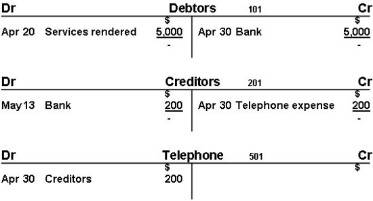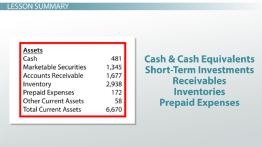Content
- Office of Student Disability Services
- Literature Reviews, Theoretical Frameworks, and Conceptual Frameworks: An Introduction for New Biology Education Researchers
- Tips on Writing a Good Conceptual Framework.
- Some additional helpful resources in constructing a conceptual framework for study:
- Conceptual Theory and Framework

After reading it, you will understand the basics of this powerful problem solving and analytic tool. The actionable research you’d like to conduct will help shape what you include in your framework. Sketch the flow of your Applied Doctoral Project from start to finish and decide which variables are truly the best fit for your research. An explicit statement of theoretical assumptions permits the reader to evaluate them critically.
- This requires a good understanding of both frameworks in order to conduct a good investigation.
- A hypothesis is a specific, testable prediction about what you expect to happen in your study.
- The theoretical framework you introduce should guide your study throughout the paper.
- These constructions can be quite valuable in helping readers understand the data-collection and analysis process.
- Reality is never accurately represented in such a simplistic way; if you imply that it can be, you fundamentally distort a reader’s ability to understand the findings that emerge.
Collectively, literature reviews, theoretical frameworks, and conceptual frameworks work to guide methodological decisions and the elucidation of important findings. Each offers a different perspective on the problem of study and is an essential element in all forms of educational research. As new researchers seek to learn about these elements, they will find different resources, a variety of perspectives, and many suggestions about the construction and use of these elements. The wide range of available information can overwhelm the new researcher who just wants to learn the distinction between these elements or how to craft them adequately. Within both the BER and the broader DBER communities, conceptual frameworks have been used to describe different constructs. For example, some researchers have used the term “conceptual framework” to describe students’ conceptual understandings of a biological phenomenon. This is distinct from a researcher’s conceptual framework of the educational phenomenon under investigation, which may also need to be explicitly described in the article.
Office of Student Disability Services
While the conceptual framework is used only for quantitative research studies developed subsequently, outlining the mental image of the themes and patterns that are emerging from the data. A theoretical framework is founded on the theories already developed over an area over a long period of time having a robust historical background while the conceptual framework is used in a new researchable area. In the conceptual framework, the fundamental concepts that characterize and delineate the study variables are presented to establish an informed understanding of the study.

As a result, the researcher may draw on Vygotsky’s sociocultural theory of learning and development that is focused on the phenomenon of student learning in a social setting. This theory posits the critical nature of interactions among students and between students and teachers in the process of building knowledge. In focusing on a specific problem within a broader research strand, a new researcher will likely need to examine research outside BER.
Literature Reviews, Theoretical Frameworks, and Conceptual Frameworks: An Introduction for New Biology Education Researchers
Theoretical framework is based upon theories that have already been tested. These are theories that are the result of painstaking research conducted earlier by other investigators.
On the other hand, in qualitative research studies, theoretical frameworks begin in a less structured or a structured manner. This is aimed at keeping the researcher from developing preconceptions on the results of the studies. Within published BER studies, literature reviews can be placed in different locations in an article. When included in the introductory section of the study, the first few paragraphs of the manuscript set the stage, with the literature review following the opening paragraphs.
Tips on Writing a Good Conceptual Framework.
The communities of practice theoretical framework (Lave, 1988; Wenger, 1998) prioritizes the institutional level, suggesting that learning occurs when individuals learn from and contribute to the communities in which they reside. Grounded in the assumption of community learning, the literature on CoP suggests that, as individuals interact regularly with the other members of their group, they learn about the rules, roles, and goals of the community . In the CoP, faculty members were involved in enhancing instructional materials within their department, which aligned with an overarching goal of instituting instruction that embraced active learning. Not surprisingly, Gehrke and Kezar revealed that faculty who perceived the community culture as important in their work cultivated institutional change. Furthermore, they found that institutional change was sustained when key leaders served as mentors and provided support for faculty, and as faculty themselves developed into leaders.
In that case, don’t be afraid to propose your own theory based on your findings. Explicitly describing conceptual frameworks is essential in depicting the focus of the study. We have found that being explicit in a conceptual framework means using accepted terminology, referencing prior work, and clearly noting connections between terms.
Some additional helpful resources in constructing a conceptual framework for study:
Begin to pull out https://personal-accounting.org/, concepts, theories, and existing frameworks explained in the relevant literature. A conceptual framework should include concepts applicable to the field of study. These can be in the field or neighboring fields – as long as important details are captured and the framework is relevant to the problem. A theoretical framework specifies which key variables influence a phenomenon of interest.
Is there a conceptual difference between theoretical?
The theoretical framework provides a general representation of relationships between things in a given phenomenon. The conceptual framework, on the other hand, embodies the specific direction by which the research will have to be undertaken.
What are the variations between conceptual framework and theoretical framework? are made up of various concepts and the relationships between them that help in explaining or predicting other events phenomenon and behaviors. In a similar manner, a theoretical framework consists of the theories a particular report derives from that will further help in explaining results. The terms theoretical framework and conceptual framework are often used interchangeably to mean the same thing. Although they are both used to understand a research problem and guide the development, collection, and analysis of research, it’s important to understand the difference between the two. When working on coursework or dissertation research, make sure to clarify what is being asked and any specific course or program requirements. The theoretical framework provides a general representation of relationships between things in a given phenomenon.
Investigate theory
Understanding these differences can help researchers better understand their own projects and ensure they use the right tools for their particular needs. The difference between theoretical and conceptual frameworks is scale — referring to the Big Ideas and the smaller ones. The conceptual framework is a set of specific ideas that can be used within the larger theoretical framework. A theoretical framework may contain many ideas that are not explored within the paper or experiment it structures. However, by definition, all aspects of the conceptual framework are used in the process of research. In order to come up with their own set of theoretical and conceptual framework that will guide the conduct of the research, students have to review literature pertaining to their chosen research topic.

